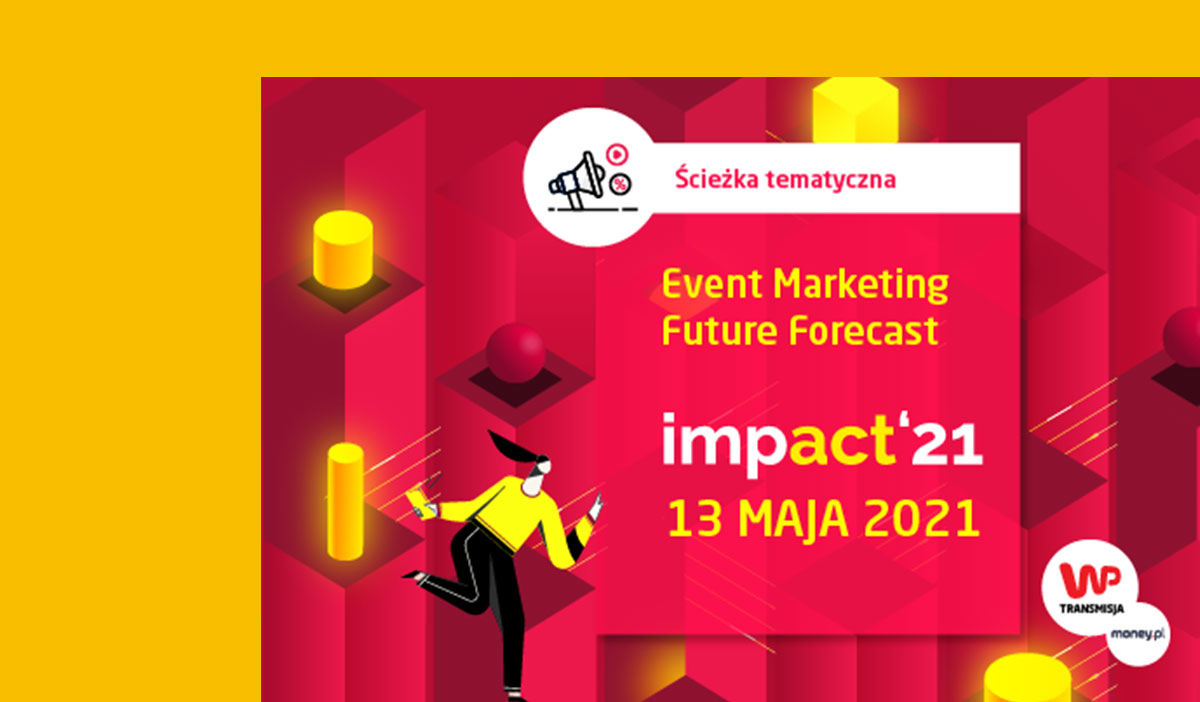
The pace of change – both technological and sociological – has never been faster than it is today. The whole world is trying to adapt to the post-pandemic reality and new ways of working, combining private and working life, communicating and moving around. This is especially visible in the event industry, which made the full transformation from physical locations to cyberspace in less than six months!
Both companies and event participants take on a pioneering challenge in the form of the evolution of engagement during events, which includes personal, hybrid and virtual experiences. Driven by customers’ appetite for continuing to combine physical and digital solutions, this rapid shift is predicted to last much longer than just in 2021, and is very likely to stay with us permanently.
In addition, whether companies decide to charge attendees for a virtual event or not, creating communities based on subscribed membership is an idea that shows no slowdown regardless of the possibility of returning to physical meetings. The need to create loyal micro-communities around products or services and activate them through events still seems to be a key element of the marketing strategy.
Marketers recognize that the more personal a brand experience we create, the more likely it is to convert to sales. Some companies successfully add real-world experiences to their virtual events, which can be a really powerful incentive to build a lasting relationship with your brand. These personal touches go a long way in building rapport and keeping consumers excited.
Communication in the age of COVID-19
As we know – a key challenge – in our new reality is to find a balance that serves our basic human need to connect while adapting to the new “virtual” realities of everyday life. Looking to the future, however, we are beginning to see something completely new on the horizon, a refreshed hybrid model. These meetings have been around for several years, but until Covid-19 usually meant placing a camera in the back of the room and broadcasting the event live to people who were stuck at home. Now it is not enough, and the recipients over the past twelve months have become used to a completely new quality of online events.
The old truth says: Relationships matter. The novelty is: Relationships are everything. Needless to say, building a relationship of trust with your customers is extremely important. However, Covid-19 has placed a new emphasis on relationships. In the face of the virtual sales environment, teams with built relationships were able to maintain the dynamics of revenues by using the power of their previous acquaintances. On the other hand, finding new customers requires a developed set of skills focused on selling solutions, not products. In both cases, trust and honesty are fundamental to market dynamics – for both customers and your own sales teams.
Marketing of the Z generation
Generation Z is a very interesting, complex, but also very diverse group. Born roughly between 1995 and 2010, Gen Z aims to become one of the fastest growing consumer markets, offering brands a huge opportunity not to be missed. Generation Z already accounts for 40% of the purchasing power of the US, Europe and the BRIC countries. Nowadays, when almost every interaction takes place via the screen, it is difficult to connect with customers, so it is very important to optimize your business from the “new normal” perspective.
Gen Z, after all, have a strong need to be in a group and surround themselves with real friends in the real world. Only a few declare regular meetings with friends on the Internet – personal contact cannot be replaced with anything else. However, we must also look at the need for physical meetings and participation in events through the prism of money – Zetka is the first generation that will probably earn less than their parents.
Regardless of the characteristics of Generation Z, the COVID-19 pandemic has fundamentally changed customer behavior and preferences. Gen Z representatives are rarely loyal to brands. It is easy for them to move from one company to another when the whole world is at their fingertips. Unlike their parents and grandparents, they are no more likely to choose recognizable, conventional brands over the “less known” ones.
By aligning their marketing strategies with their new base of potential customers, brands can gain an advantage in the race for the attention and loyalty of Generation Z. However, this is no easy task. To create an effective strategy, marketers need to fully understand their audience. How to do it? The answer lies in seeing this generation as a community of young people with a diverse set of characteristics, not as a consumer base with predetermined buying habits. It’s important to show them that it’s not just about the product, but about the bigger picture.
/////
We will look for answers to questions that arise in the context of communication in the era of Covid-19 and Gen Z marketing on May 13, 2021 during the Impact’21 spring edition. During the Event Marketing Future Forecast track, partnered by THE WAY agency, you will be able to learn more about how the transition from offline to online puts new emphasis on digital strategies, trends and storytelling, community and new technologies in event marketing. Event Marketing Future Forecast is engaging discussions and excellent speakers, including: Anna Wiśniewska – Skanska Marketing and Communications Director, Kamilla Giedrojć – IBM Polska Strategy and Marketing Manager, Michiel Pool – Head of Event & Experience Management Ericsson, Marta Życińska – Vice President, Marketing and Communication CEE, Mastercard Europe, or Dariusz Maciołek – CMO – managing director of the marketing, communication and social involvement division of BNP Paribas.
Authors:
Kate Lechowicz – Director & Consultant, Fuel For Thought
Przemysław Kurdziel – Business Development Manager, THE WAY
